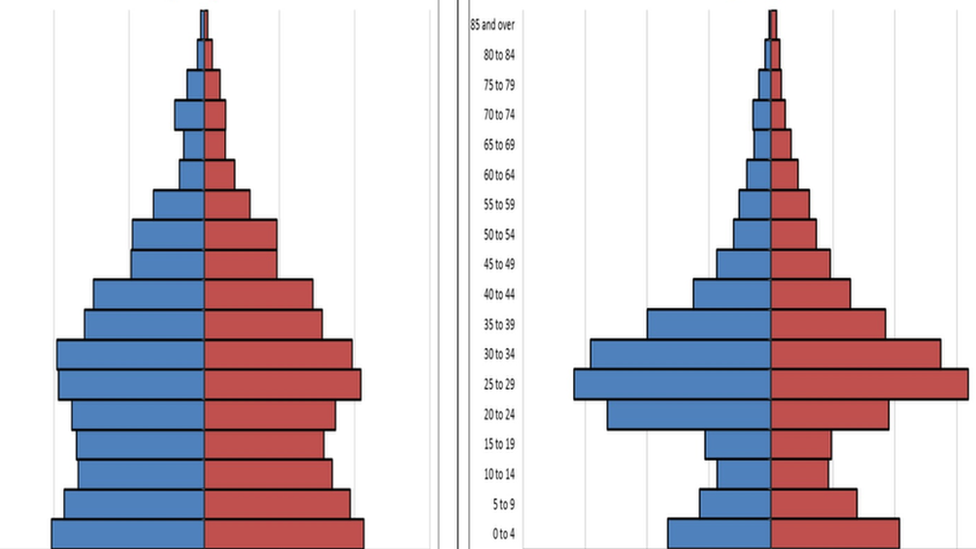Welcome to Scotland?
- Published
The first in a series of reports on immigration asks where Scotland's immigrant communities come from
As the general election campaign heats up, one concern that opinion polls consistently show voters want to see addressed is: immigration. This week, across BBC Scotland news, we are taking a close look at the issue.
The story of Scotland is more often told about the people who left than its new arrivals.
About 2.3 million left between 1915 and 1939.
Yet the nation is peopled by waves of immigration and one role they played was to avoid a potential demographic crisis from so many departures.
The nature of Scotland's immigration was shaped by its geography.

Welcome to Scotland?

It is at Europe's periphery rather than its crossroads.
From the Celts, many of its people ended up in Scotland because they were pushed - by rival tribes, poverty elsewhere or intolerance.
The future of the Scottish economy may depend today more on immigrants who are pulled - seeing the country as a place of opportunity, notably in its universities and research.
By European comparisons, the nation's share of immigrants is not high.

Welcome to Scotland
Change in population 2001 - 2011
+0.03%
Scots-born
-
+93% Non-UK born
-
+222% EU (but not UK)-born

About seven in every 100 Scots were born overseas.
But concern about immigration can be seen in polling.
It may be a spillover effect from England, where there is likely to be a stronger sense of living on a crowded island, and where they have nearly twice the proportion of newcomers, which can be seen to contribute to cultural uncertainty and economic insecurity.
And it may also be that London is becoming an ever more ethnically diverse world city - a capital which looks and sounds less and less like the rest of the country of which it is the capital.

Welcome to Scotland
Immigrant population in 2010
6.3%
Scotland
-
15% EU
-
15% North America

This week BBC Scotland News is taking a close look at the issue of immigration north of the border. It will be publishing a specially-commissioned poll to find out more about Scottish attitudes.
The story of immigration goes back to waves of ancient tribes and invaders. In the modern era, the 19th century brought a vast influx of Irish people.
Following on the worst of the famine, Prof Sir Tom Devine cites census findings that there were more than 200,000 Irish-born people in Scotland in 1851 and nearly as many 10 years later.
That was despite the government shipping 47,000 Irish paupers back from Scotland to their homeland between 1845 and 1854.
The Edinburgh University historian says that, necessarily, a large influx of newcomers creates tensions, some of which can continue for a long time.

Welcome to Scotland
Ethnic minority populations
-
12% Glasgow
-
8% Aberdeen
-
8% Edinburgh
-
0.9% Eilean Siar
-
0.7% Orkney

Even apart from the religious tensions, there were economic ones. Irish people were perceived as competing for jobs, as were Lithuanians.
By contrast, Sir Tom observes that the subsequent arrival of many Italians caused few such problems. Italians were known for running cafes and ice-cream parlours, so they were not in direct competition with the Scots majority.
The Russian pogroms of the early 20th century brought Jews to Scotland, many settling in Glasgow's Gorbals.
It is said that some, unable to speak English, were duped by shipping companies into thinking that they had arrived in the USA, to avoid the cost of transporting them further.
As their prosperity grew, they moved south and most live in East Renfrewshire, though out-migration has seen the population fall to only 6,000 in the most recent census.
Pakistani, Indian and Bangladeshi people came to Scotland to seek out opportunities, and remain notable successes in business.

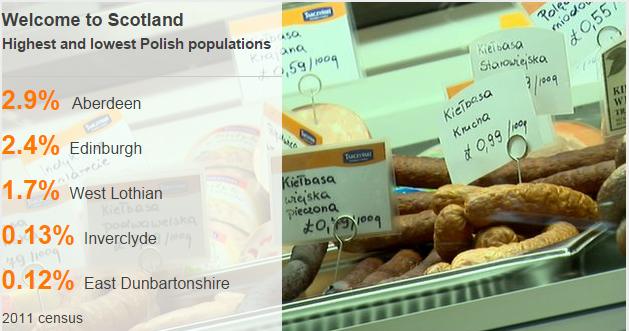

Unlike several English cities, those from Caribbean islands have not settled in Scotland in significant numbers. African numbers have only picked up to significant levels since the start of this century.
In the past 20 years, the shape, nature and scale of immigration has changed since the former Soviet bloc countries joined the European Union, led by Polish people.
And there's also another large minority of those not born in Scotland but settled in it.
They are from England, Wales and Northern Ireland. More than 400,000 are in that position - one in 13.

If people from England, Wales and Northern Ireland were counted as immigrants, Scotland's population would rise to nearly 18%, a higher proportion than the USA.

Sir Tom Devine comments: "In my view immigration has been a tremendous advantage, adding value to the development of the Scottish nation. It's given it variety, colour, better food and a significant effect in economic terms."
While the historian has documented the resentment felt towards Irish immigrants, and Catholics in particular, the historian continues: "We cannot boast of having warmly welcomed every immigrant because that would have been unnatural.
"They are different, they can be alien and that produces negative attitudes in any community. But on the other hand largely because large-scale black immigration has not come to Scotland so we were never able to test prejudice in that way."
The Big Immigration debate is on BBC Two Scotland at 22:30 on Tuesday 10 March
- Published10 March 2015
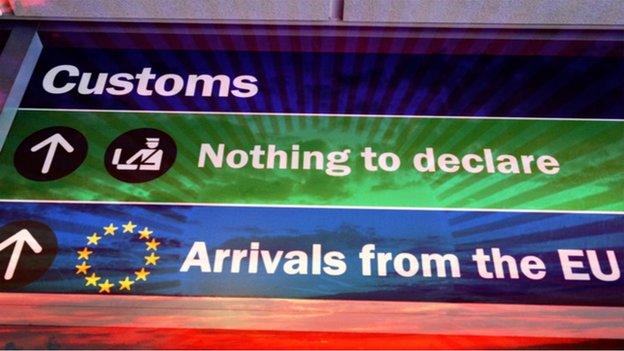
- Published11 March 2015
- Published9 March 2015
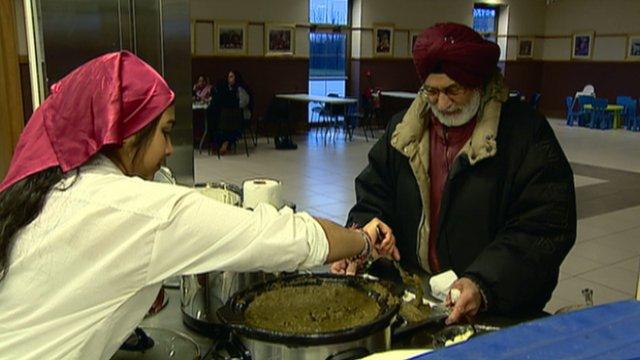
- Published9 March 2015
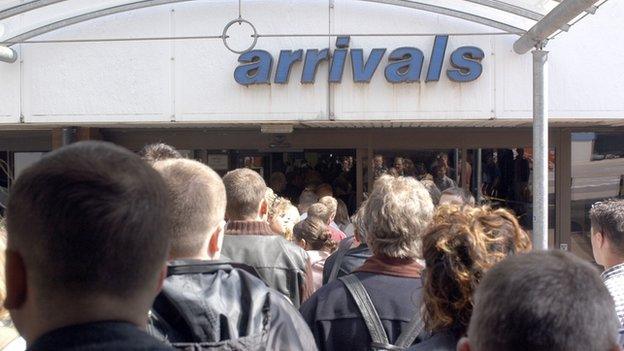
- Published9 March 2015
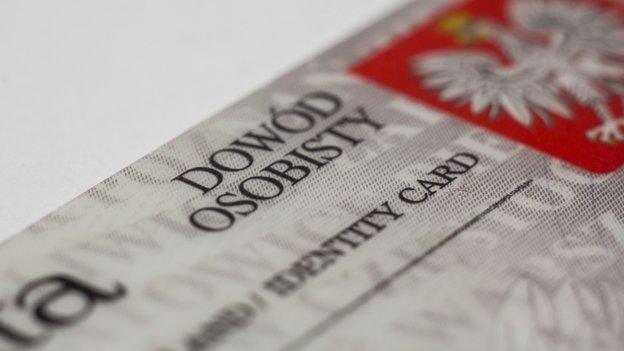
- Published10 March 2015
